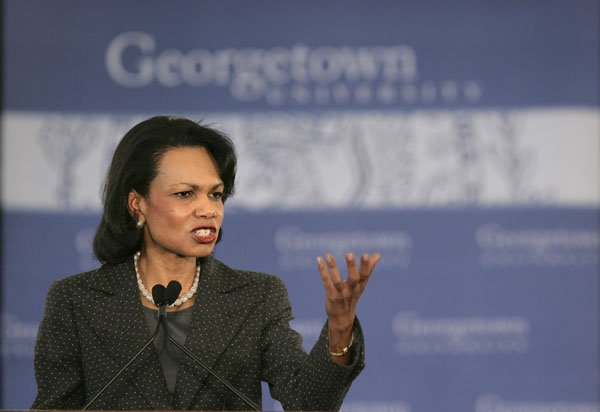Government Grants
Business Grants
Home Owner Programs
Federal Programs
About Us
Technical and Vocational Education and Training (TVET) Support Program
The Public Diplomacy Section (PDS) of the U. S. Embassy in Tbilisi is pleased to announce an open competition for the Georgian TVET Institutions to submit applications to the Technical and Vocational Education and Training (TVET) Support Program 202 4. Interested applicants should submit proposals
to TbilisiGrants@state.gov by July 1, 2024, 18:0 0. A.
PROGRAM DESCRIPTION Background:
Georgia’s Technical and Vocational Education and Training (TVET) reforms are aimed at supporting socio-economic development, poverty reduction, and developing human capital to meet the needs of the labor market.
Thus far, reform has primarily focused on identifying labor force needs and reducing the mismatch between supply and demand, to reduce overall unemployment and increase the employment rates of TVET graduates.
Self-employment (mainly underemployment in subsistence agriculture) and high urban unemployment remain major economic challenges.
The gender imbalance in vocational education is a significant challenge to the development of an inclusive TVET system and a barrier to women’s labor force participation.
Community or family beliefs undermine the potential role of women in contributing to sustainable and productive livelihoods.
Gender stereotypes about the kinds of work women and men “should” do limit students from pursuing satisfying careers in non-traditional areas.
Negative gender norms and beliefs hold back girls and women from applying for traditionally male-dominated trades in lieu of female-dominated trades, which may not necessarily lead to profitable work.
We face the same problem with female-dominated fields where negative gender norms are affecting boys and men’s decisions to follow some specific career paths.
In general, gender-specific differences are most pronounced in the education, health, and welfare disciplines, which are clearly dominated by women.
In contrast, men dominate in engineering, manufacturing, construction, and services (Geostat, 2018).
Culturally, a negative stigma affiliated with TVET harkening back to the Soviet Union, has become a significant barrier for the much-needed program.
TVET is not considered a desired or first-rate career path.
There is a prevailing belief that TVET qualifies graduates for low status, manual, and poorly paid jobs.
Employers do not trust vocational qualifications.
Vocational counselling and career planning services are an essential element in the country’s education and training system.
Although some reforms have been started towards this direction, still counselling and guidance remain at a basic level, mainly due to insufficient staffing.
As a result, students in primary and secondary education, young people and parents making important life decisions do not always have enough information on the available educational and occupational choices and they often have to make uninformed decisions.
Weak career guidance is followed by weak support for job search and job intermediation, especially for young people as they enter the labor market for the first time.
The analysis shows that young people (and especially young women) face obstacles transitioning to the labor market.
This includes inflation of qualifications, lack of trust of vocational qualifications, preference for higher levels of education, work experience requirements, and the mismatch of skills between supply and demand.
In spite of the high level of unemployment, employers find it difficult to locate the personnel they require.
Program Objectives:
The objectives of the Technical and Vocational Education and Training (TVET) Support Program 2024 are the following:
· Developing systematic vocational counselling and career guidance from school to higher education level for all learners, jobseekers, and alumni, for better informed career decisions and higher access to labor market.
· Mainstreaming gender in TVET – integrating a gender perspective and priority in all policy planning, implementation, and evaluation activities at all levels.
· Increasing the participation of female students in formerly male-dominated TVET programs and promoting formerly nontraditional TVET programs to both, female and male students to overcome discriminatory cultural norms and community practices so that women and men benefit equally from the same opportunities.
· Strengthening the capacity of TVET providers to overcome gender disparity in student recruitment and retention.
The Public Diplomacy Section (PDS) of the U. S. Embassy in Tbilisi will accept projects proposed and managed by Georgian TVET institutions that support the above listed objectives.
Note:
Proposals from regional TVET institutions that include public-private partnerships are encouraged.
PROGRAM DESCRIPTION Background:
Georgia’s Technical and Vocational Education and Training (TVET) reforms are aimed at supporting socio-economic development, poverty reduction, and developing human capital to meet the needs of the labor market.
Thus far, reform has primarily focused on identifying labor force needs and reducing the mismatch between supply and demand, to reduce overall unemployment and increase the employment rates of TVET graduates.
Self-employment (mainly underemployment in subsistence agriculture) and high urban unemployment remain major economic challenges.
The gender imbalance in vocational education is a significant challenge to the development of an inclusive TVET system and a barrier to women’s labor force participation.
Community or family beliefs undermine the potential role of women in contributing to sustainable and productive livelihoods.
Gender stereotypes about the kinds of work women and men “should” do limit students from pursuing satisfying careers in non-traditional areas.
Negative gender norms and beliefs hold back girls and women from applying for traditionally male-dominated trades in lieu of female-dominated trades, which may not necessarily lead to profitable work.
We face the same problem with female-dominated fields where negative gender norms are affecting boys and men’s decisions to follow some specific career paths.
In general, gender-specific differences are most pronounced in the education, health, and welfare disciplines, which are clearly dominated by women.
In contrast, men dominate in engineering, manufacturing, construction, and services (Geostat, 2018).
Culturally, a negative stigma affiliated with TVET harkening back to the Soviet Union, has become a significant barrier for the much-needed program.
TVET is not considered a desired or first-rate career path.
There is a prevailing belief that TVET qualifies graduates for low status, manual, and poorly paid jobs.
Employers do not trust vocational qualifications.
Vocational counselling and career planning services are an essential element in the country’s education and training system.
Although some reforms have been started towards this direction, still counselling and guidance remain at a basic level, mainly due to insufficient staffing.
As a result, students in primary and secondary education, young people and parents making important life decisions do not always have enough information on the available educational and occupational choices and they often have to make uninformed decisions.
Weak career guidance is followed by weak support for job search and job intermediation, especially for young people as they enter the labor market for the first time.
The analysis shows that young people (and especially young women) face obstacles transitioning to the labor market.
This includes inflation of qualifications, lack of trust of vocational qualifications, preference for higher levels of education, work experience requirements, and the mismatch of skills between supply and demand.
In spite of the high level of unemployment, employers find it difficult to locate the personnel they require.
Program Objectives:
The objectives of the Technical and Vocational Education and Training (TVET) Support Program 2024 are the following:
· Developing systematic vocational counselling and career guidance from school to higher education level for all learners, jobseekers, and alumni, for better informed career decisions and higher access to labor market.
· Mainstreaming gender in TVET – integrating a gender perspective and priority in all policy planning, implementation, and evaluation activities at all levels.
· Increasing the participation of female students in formerly male-dominated TVET programs and promoting formerly nontraditional TVET programs to both, female and male students to overcome discriminatory cultural norms and community practices so that women and men benefit equally from the same opportunities.
· Strengthening the capacity of TVET providers to overcome gender disparity in student recruitment and retention.
The Public Diplomacy Section (PDS) of the U. S. Embassy in Tbilisi will accept projects proposed and managed by Georgian TVET institutions that support the above listed objectives.
Note:
Proposals from regional TVET institutions that include public-private partnerships are encouraged.
Obtain Full Opportunity Text:
https://bja.ojp.gov/funding/opportunities/o-bja-2024-172111
Additional Information of Eligibility:
Eligibility is limited to Georgian public and private authorized TVET institutions.
Full Opportunity Web Address:
https://bja.ojp.gov/funding/opportunities/o-bja-2024-172111
Contact:
Agency Email Description:
TbilisiGrants@state.gov
Agency Email:
Date Posted:
2024-04-30
Application Due Date:
Archive Date:
2024-07-31
Social Entrepreneurship
Spotlight
Celebrity Chef Jamie Oliver Backs Social Saturday

UK will be celebrating its first national celebration of social enterprises dubbed as Social Saturday. World famous celebrity chef Jamie Oliver, who founded the Fifteen restaurant chain.

